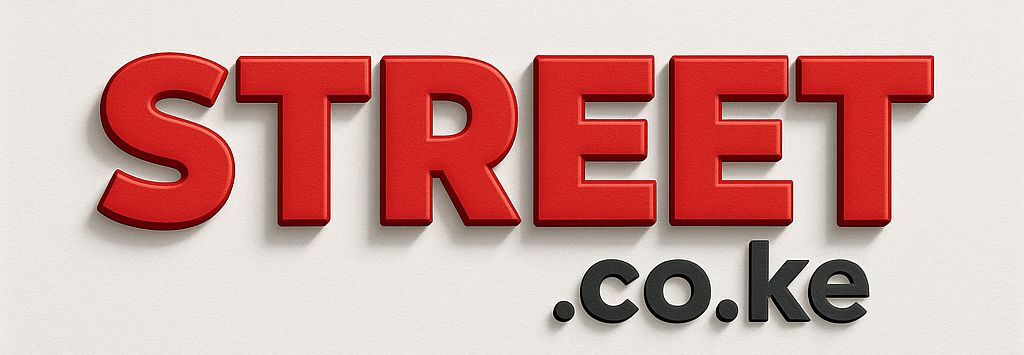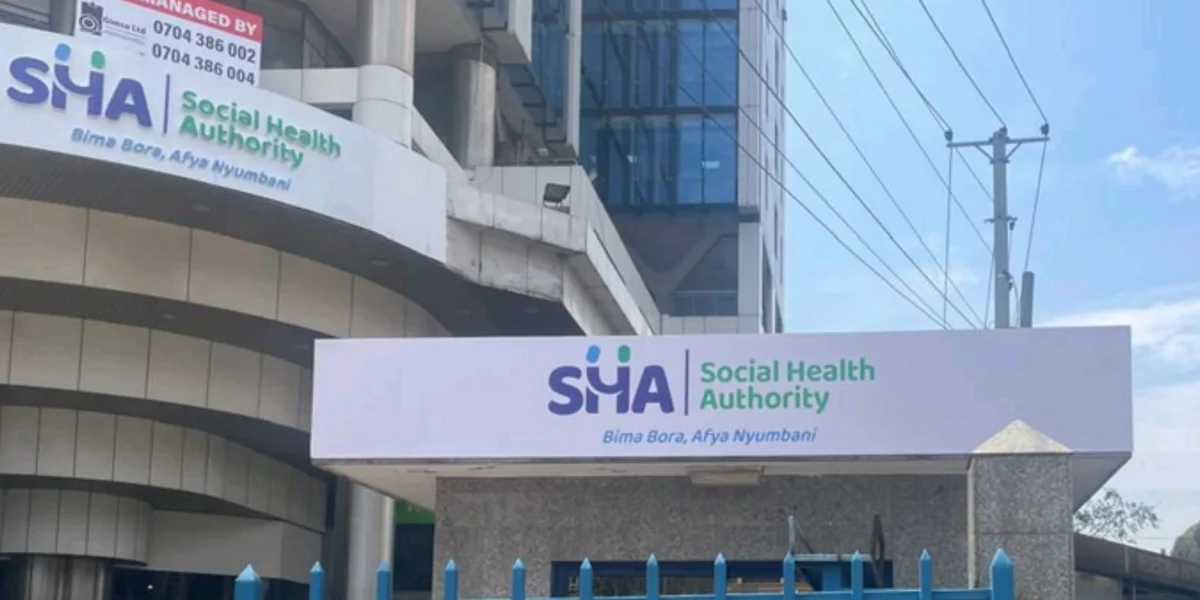How to Register for SHA: A Comprehensive Guide for Kenyans
By Jackline Adasa | August 27, 2025
In the bustling streets of Nairobi, Mombasa, and Kisumu, access to affordable healthcare has long been a hot topic. With rising medical costs and the push for Universal Health Coverage (UHC), the Kenyan government rolled out the Social Health Authority (SHA) in 2023 as a game-changer. Replacing the old National Hospital Insurance Fund (NHIF), SHA aims to make quality healthcare a reality for every Kenyan, regardless of their pocket depth. But here’s the catch: to tap into these benefits, you need to register. As of August 2025, with the system fully operational, millions have already signed up, but many are still scratching their heads on how to get started.
This blog post is your ultimate roadmap. We’ll break down everything from what SHA is, why it’s crucial in today’s Kenya, to a step-by-step guide on registration. Whether you’re a hustler in the informal sector, a salaried employee, or a family head looking to cover your loved ones, we’ve got you. By the end, you’ll be equipped to register hassle-free and secure your spot in Kenya’s evolving health landscape. Let’s dive in – because health isn’t just wealth; it’s survival on these streets.
What is SHA and Why Should You Register?
The Social Health Authority (SHA) is a state corporation established under the Social Health Insurance Act of 2023. It’s the backbone of Kenya’s UHC ambitions, managing funds from contributions to provide preventive, promotive, curative, rehabilitative, and palliative care. Think of it as NHIF on steroids – more inclusive, with better coverage for chronic illnesses, emergencies, and even mental health services.
SHA operates through three main pillars: the Social Health Insurance Fund (SHIF, also known as Taifa Care), the Primary Health Care Fund, and the Emergency, Chronic, and Critical Illness Fund. Contributions are pegged at 2.75% of gross income for salaried folks, while informal workers undergo means testing to determine affordable premiums – as low as KSh 300 for the vulnerable. This tiered system ensures no one is left behind, unlike the flat-rate NHIF model.
Why register now? Registration is mandatory for all residents – citizens, foreigners, and refugees – to access subsidized healthcare. Miss it, and you risk out-of-pocket expenses that could bankrupt you during a medical crisis. Plus, with Kenya’s population hitting over 50 million, SHA is key to reducing hospital queues and improving service delivery. In 2025, amid economic pressures from inflation and job losses, having SHA coverage means peace of mind. Employers must register staff too, or face penalties. Bottom line: It’s not optional; it’s essential for navigating life’s uncertainties.
Eligibility and Requirements for SHA Registration
Good news – SHA is for everyone in Kenya. Eligibility covers:
- Kenyan Citizens: All adults over 18, plus children as dependents.
- Foreign Residents: With valid permits or passports.
- Refugees: Using UNHCR documents.
- Dependents: Spouses, children under 18 (or up to 25 if in school), and even elderly parents in some cases.
No age or health restrictions apply; it’s universal. However, means testing assesses your income to set contributions, ensuring fairness.
What do you need to register? Keep it simple:
- National ID card (for Kenyans) or passport/alien ID (for foreigners).
- Birth certificates for children.
- A working mobile phone number for verification (OTP codes).
- Recent passport-sized photo (for online uploads).
- Details of dependents, if any.
- For employers: Business registration details and employee info.
No fancy tech required – even a basic feature phone works for USSD. If you’re unemployed or low-income, the system flags you for subsidized rates after means testing.
The Three Main Ways to Register for SHA
SHA offers flexible options to suit Kenya’s diverse population. Whether you’re tech-savvy or prefer face-to-face help, there’s a method for you: USSD self-registration, web self-registration, and assisted enrolment. Let’s explore each.
1. USSD Self-Registration: Quick and Mobile-Friendly
Perfect for street hustlers without internet – just dial *147# on any Kenyan network (Safaricom, Airtel, Telkom). It’s free, instant, and available 24/7. Here’s the step-by-step:
- Step 1: Dial *147# on your phone.
- Step 2: Select your language (English or Kiswahili).
- Step 3: Choose your ID type: 1 for Kenyan Citizen, 2 for Foreign Resident, or 3 for Refugee.
- Step 4: Enter your National ID number (or equivalent) and first name.
- Step 5: Provide your phone number for OTP verification. Enter the code sent via SMS.
- Step 6: Create a 4-digit PIN for security.
- Step 7: Fill in personal details like date of birth, county of residence (select first letter, e.g., 4 for Nairobi), and email (optional).
- Step 8: Add dependents: Enter their IDs, names, and relationships.
- Step 9: Complete means testing by answering income-related questions (e.g., employment status, salary range).
- Step 10: Review and submit. You’ll get a confirmation SMS with your SHA member number.
Pro tip: If the OTP doesn’t arrive, check your signal or try later. This method takes under 10 minutes and is ideal for rural areas.
2. Web Self-Registration: For the Digital Natives
If you have internet, head to the official SHA website. It’s user-friendly and integrates with the Afya Yangu portal for seamless access.
- Step 1: Visit the SHA website and click “Register Individual.”
- Step 2: Agree to terms and conditions on the Afya Yangu platform.
- Step 3: Select ID type (Kenyan Citizen, etc.).
- Step 4: Enter your ID number, phone number, and first name.
- Step 5: Verify with the OTP sent to your phone.
- Step 6: Set up a 4-digit PIN.
- Step 7: Complete your profile: Add gender, DOB, residence details, and upload a photo.
- Step 8: Add dependents with their details and documents.
- Step 9: Undergo means testing via an online questionnaire.
- Step 10: Submit and download your confirmation. Your SHA ID will be emailed or SMS’d.
Use a computer or smartphone browser – Chrome works best. If the site loads slowly, try off-peak hours.
3. Assisted Enrolment: Help When You Need It
Not comfy with tech? No sweat. Visit a Huduma Centre, county health facility, or contact a Community Health Promoter (CHP).
- Step 1: Locate your nearest spot (over 50 Huduma Centres nationwide).
- Step 2: Bring your ID, dependents’ docs, and phone.
- Step 3: An agent guides you through the form – similar to online but hands-on.
- Step 4: Verify details, create PIN, and complete means testing verbally.
- Step 5: Get instant confirmation and a printed SHA card (if available).
This is great for seniors or those in remote areas. It’s free, but queues can be long – go early.
Adding Dependents and Making Contributions
Once registered, add family members via any method. For USSD: Dial *147#, select “Add Dependents,” and input details. Online: Log in to Afya Yangu and update your profile.
Contributions start post-registration. Salaried? Your employer deducts 2.75% and remits via the SHA portal. Informal? Pay via M-Pesa Paybill 200222 (account: your ID or SHA number) or bank transfer. Minimum is KSh 300/month for low-income, up to higher based on means test.
Track payments on Afya Yangu or *147#. Late payments? You might lose benefits temporarily, so stay current.
Common Issues, FAQs, and Troubleshooting
Registration isn’t always smooth – here’s the real talk:
- OTP Not Received? Network glitches; try again or switch SIM.
- Invalid ID? Ensure it’s active; visit NIRA if expired.
- High Premiums? Dispute means testing via SHA helpline.
- Employer Issues? Businesses register via the SHA employer portal.
FAQs:
- Is SHA free? Registration yes; contributions no.
- NHIF to SHA Transition? Automatic for existing members, but verify.
- Contact Help? Toll-free 0800 720 601 or SHA’s official email.
- App Available? Yes, download Afya Yangu for management.
In 2025, complaints about loading issues on Afya Yangu persist – patience is key.
The Benefits of SHA: More Than Just Insurance
Registering unlocks a world of perks: Free primary care at level 1-3 facilities, subsidized inpatient/outpatient, emergency coverage up to KSh 1 million/year, and chronic disease management. Families save big – no more selling assets for hospital bills. SHA also boosts Kenya’s health infrastructure, creating jobs and reducing inequality.
Stories from the streets: A Nairobi matatu driver shared how SHA covered his wife’s maternity, saving KSh 50,000. In rural areas, it’s a lifeline against diseases like malaria.
Conclusion: Take Action Today
Registering for SHA is more than a chore – it’s investing in your future. With easy methods like *147#, online portals, or assisted help, there’s no excuse to delay. As Kenya pushes for UHC in 2025, be part of the change. Head to the SHA website, dial that code, or visit a centre now. Your health, and Kenya’s, depends on it.
Stay informed with Street.co.ke for more on Kenyan life hacks, news, and tips. Got questions? Drop a comment below!

